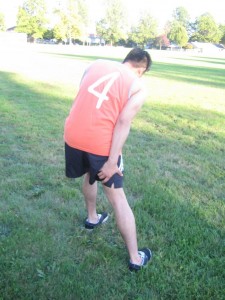Even though running is a way to keep the body healthy, it can cause sore leg muscles. Running with speed on long distances places significant strain on the legs and the exertion leaves one physically drained and aching. Luckily, there are measures that can help lessen the discomfort of the sore leg muscles that arises after running.
Proper hydration
Dehydration is a main issue of concern among runners particularly those who are running in warm climates or hot indoor facilities. The condition makes one susceptible to fatigue and heat stroke but there are also other adverse effects. Remember that dehydration aggravates the soreness of the leg muscles after exertion. It is vital to drink fluids before physical activity, during and after.
Antioxidants
During physical activity, free radicals are generated since the body is subjected to stress. These atoms can impair the tissues and cells and result to sore leg muscles if left untreated. Nevertheless, antioxidants such as vitamin E and C can deal with the effects of the free radicals and lessen the soreness.

Intake of carbohydrates and protein
Even though carbohydrates provide the body with energy especially in endurance and aerobic sports such as running, proteins can also help with recovery.
Proteins supplies the body with amino acids that form the structure of the muscles. Intake of protein after running is considered highly beneficial. The intake of both carbohydrates and protein after running can alleviate the sore leg muscles and improve muscular performance.
Compression clothing for sore leg muscles
Compression clothes places pressure on the muscles to provide a gentle massage effect and promotes the flow of blood to the muscles. This type of clothing also aids in reducing the fatigue and swelling aside from the muscle soreness.
Quick Note / Disclaimer
The material posted on this page on sore leg muscles is for learning and educational purposes only. To learn to manage the soreness, register for a first aid and CPR course with Ottawa First Aid.
